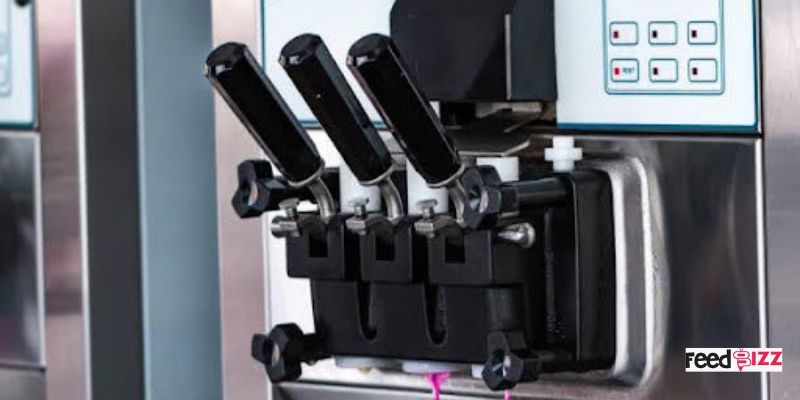Noisy soft serve machines may disturb an entire work environment and bother customers; they can cause disturbances in the workplace and public places. Everyone who runs a taylor C707 soft serve freezer should have this taught very well, without being told about the important, quiet, smooth operation of the equipment. Strange noises coming from the machine are indications that something isn’t working properly. Before losing your head over whether to replace the entire unit, you should first try to find out what could possibly be going wrong.
You will find that many of the noise issues can easily be remedied with simple checks, and so it makes sense to understand what is going wrong. Minor issues can be fixed, including loose parts, worn-out fan motors, dirty condensers, etc. Such problems could be fixed if addressed early. This simple troubleshooting guide can help you go through the common reasons why your soft serve freezer might produce noise and practically restore the peace in your shop. Restoring peace in your shop is easier than you might expect if the right approach is followed.
Find the Source of the Noise
Finding where the noise originates is the first step. Various parts that can generate noise are found on soft serve freezers. Included here are the compressor, evaporator fan, condenser fan, and even the engine. Once you narrow down the source, you can more readily identify the cause. If the compressor is producing noise, it could be a mechanical problem. A buzzing or humming sound could suggest the compressor is having trouble starting or operating. Conversely, a rattling or scraping sound might indicate loose components within the unit.
Check the Condenser Fan
Many times, the source of a noisy soft serve freezer is the condenser fan. Dust and debris can build up over time on the fan blades, influencing their balance or wobbling. This might generate an annoying sound. Unplug the freezer and switch it off to fix this. Clean the blades and remove any visible debris around the fan. See if the fan moves freely when you hand-turn it. You might have to change either the fan motor or the blades if the fan is still noisy or if they are damaged.
Check the Evaporator Fan
Circulating cold air inside the freezer is done by the evaporator fan. Should this fan break, it might generate grinding, squealing, or rattling noises. This issue sometimes comes up when dust or ice accumulation blocks the fan. Unplug the unit and check the fan for ice or trash to help you fix it. Defrost the unit to let the ice melt if you see a buildup. Should the fan blades seem damaged
Examine the Compressor
Any refrigeration system depends critically on the compressor; it might be a large source of noise. A loud buzzing or rattling noise from the compressor could suggest either overwork or the approaching end of life for the unit. Make sure the freezer is not overstuffed first. Overloading the unit might cause the compressor to be stressed, therefore raising noise levels. A compressor that persists in making noise after checking the correct load may require either replacement or expert inspection.
Search for Loose Parts or Vibrations
Loose or vibrating components sometimes cause a loud soft serve freezer. Look for any panels or screws that might have come loose throughout time. These parts can vibrate against other components, hence producing unwanted noise. Tighten any loose components using suitable instruments. Also, see whether the freezer is correctly levelled. An unbalanced unit can also produce vibrations, therefore magnifying any background noise. Change the freezer’s feet to guarantee its level resting on the flooring.
Consider the Refrigerant Levels
Another factor that can lead to noise in a soft serve freezer is low refrigerant levels. Insufficient refrigerant forces the compressor to work more to chill the unit, which could cause noisier operation. If you think the refrigerant levels are low, it is advisable to contact a qualified technician who can inspect for leaks and recharge the refrigerator. A refrigerant leak in some situations could also result in a hissing sound. Should this happen, the leak has to be fixed prior to recharging the refrigerant.
Call a Professional Technician
Should none of the aforementioned fixes fix the problem, it may be time to contact a professional technician. Soft serve freezers are sophisticated machines with refrigeration systems that need technical knowledge. An experienced technician can more precisely identify the issue and offer the needed repairs. In certain cases, a technician could find a more serious problem with the internal components of the freezer, including the compressor or electrical system. A professional can also do regular maintenance to ensure the freezer operates quietly and smoothly.
Conclusion
Resolving a loud soft serve freezer unit need not be difficult. Following the procedures set above will help you to locate and repair several usual issues which produce noise in your freezer. Whether it’s tightening loose components, checking the compressor, or cleaning the condenser and evaporator fans, there are many approaches to bring calm back to your kitchen.









